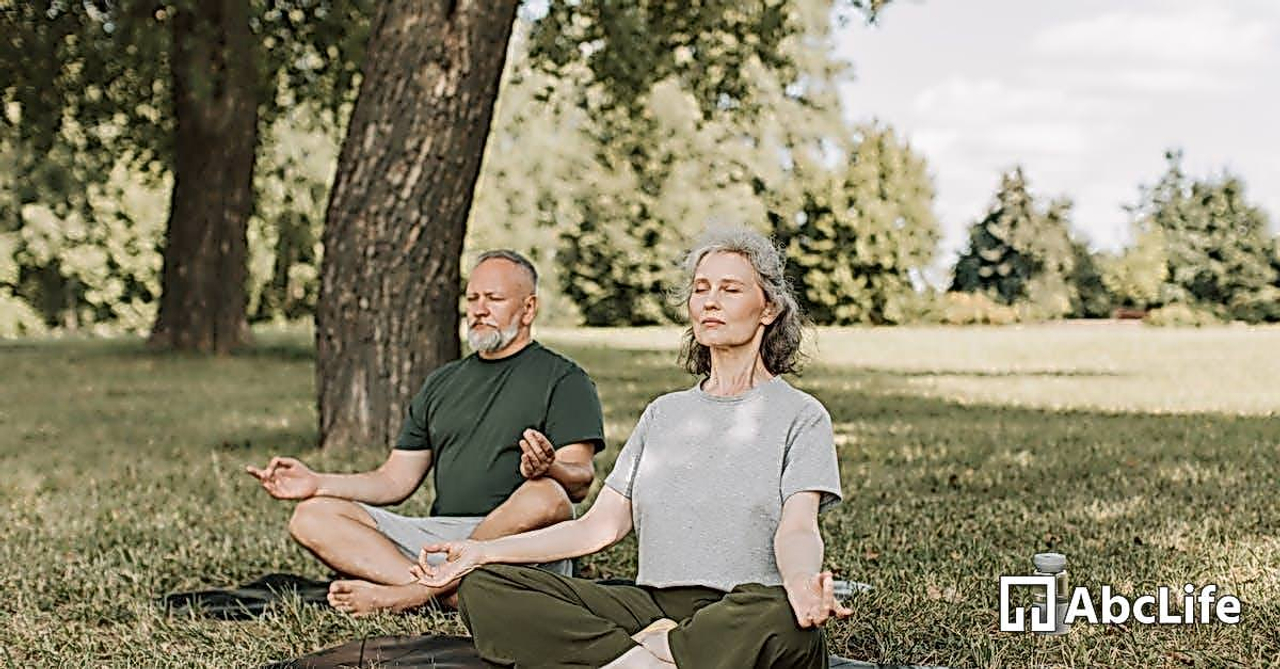It can be difficult to unwind and relax after a long and busy day. However, it is critical to de-stress in order to maintain good mental and physical health. In this article, we'll look at simple yet effective ways to unwind and de-stress after a long day. You will learn how to create a relaxing environment and find inner calm through breathing exercises and aromatherapy. With these simple tips, you can say goodbye to stress and hello to relaxation.
Deep Breathing Exercises for Relaxation

It is natural to feel tired and stressed after a long day at work, school, or running errands. Deep breathing exercises are an excellent way to relax and de-stress. Deep breathing exercises help to relax the mind, reduce anxiety, and calm the mind. They are simple to perform, require no equipment, and can be done at any time.
Begin by looking for a quiet place to sit or lie down. Close your eyes and inhale deeply through your nose, filling your lungs. Hold your breath for a few seconds, then exhale slowly through your mouth, letting all of the air out. Repeat for a few minutes, focusing on your breathing and clearing your mind of any thoughts or distractions. You can also try counting to four as you breathe in, holding for four seconds, and then exhaling to four. Deep breathing causes your heart rate to slow, your muscles to relax, and your mind to become clear and calm.
Including deep breathing exercises in your daily routine can help you reduce stress, lower blood pressure, and improve your overall well-being. Examine how deep breathing exercises can help you relax and de-stress in your daily routine.
Aromatherapy for Relaxation

Aromatherapy is an ancient healing and relaxation practice that uses natural oils and scents extracted from flowers, herbs, wood, and spices. Aromatherapy works by stimulating the smell receptors in your nose and activating your brain's limbic system, which is in charge of emotions and memories. Essential oils can have a calming and soothing effect on your body and mind when inhaled.
After a long day, aromatherapy can help you relax and de-stress. Lavender, chamomile, ylang-ylang, bergamot, and sandalwood are some of the most popular essential oils for relaxation. These oils can be used in a variety of ways, including adding a few drops to your bathwater, diffusing them in a room, and using them in a massage. Lavender is especially effective for promoting relaxation and can help you sleep better at night. Chamomile is another well-known essential oil that can help you relax and reduce anxiety. The sweet, floral scent of ylang-ylang can lift your mood and reduce stress. Bergamot is a citrusy oil that can help you feel more energetic and vital, while sandalwood has a woody, earthy aroma that can help you feel grounded and centered.
Yoga Poses for Stress Relief
Yoga has been practiced for thousands of years and is a popular form of exercise. It not only improves flexibility, strength, and balance, but it can also be an effective stress reliever. Here are a few simple yoga poses that can help you relax and release tension:
Child's Pose (Balasana)
This pose requires you to sit back on your heels and reach your arms forward, resting your forehead on the mat. It can aid in the relaxation of the mind and the release of tension in the back, hips, and thighs.
Downward-Facing Dog (Adho Mukha Svanasana)
Place your hands and feet on the mat and lift your hips up towards the ceiling, forming a triangle shape with your body. It can help to stretch the hamstrings, calves, and spine while also encouraging relaxation.
Corpse Pose (Savasana)
This final pose entails lying on your back with your arms and legs relaxed, allowing your body to completely relax and release any tension or stress. It is an excellent way to unwind and relax after a long day.
You can help to combat stress and promote relaxation in both your body and mind by incorporating these simple yoga poses into your daily routine.
Natural Remedies for De-stress
We all experience feelings of stress and overwhelm from time to time. While it is natural to feel stressed at times, it is critical to find ways to relax and de-stress. There are natural remedies that can help you manage stress and anxiety rather than relying on medication. Here are some simple, natural stress relievers:
Exercise
Exercising is an excellent way to de-stress and release stress from your body. Endorphins, which are natural mood boosters, are released by the brain when you exercise. To reap the benefits of exercise, you do not need to engage in a high-intensity workout. A simple walk, jog, or yoga session can suffice.
Aromatherapy
Certain herbs and oils have a calming effect on both the mind and the body. Some of the most popular essential oils used in aromatherapy to relieve stress are lavender, chamomile, and eucalyptus. Simply inhaling essential oil scents can help you relax and feel more grounded.
Meditation
Meditation is a simple practice that has numerous advantages, including the reduction of stress and anxiety. Find a quiet place, sit comfortably, and concentrate on your breathing. Mindfulness meditation has been shown to improve focus, reduce anxiety, and promote relaxation.
Finally, there are numerous natural remedies that can assist you in dealing with stress and anxiety. You can improve your mental and physical health by incorporating these simple techniques into your daily routine.
Unplug from Technology: The Secret to Relaxation and Well-Being
It's no secret that technology rules today's world. We are constantly connected to gadgets and screens, from smartphones to laptops. While technology has made our lives easier, it has also increased stress and a sense of always being "on." To truly unwind after a long day, it is necessary to unplug from technology.
Unplugging from technology has numerous advantages, including improved sleep quality, reduced anxiety, and improved focus. Instead of scrolling through social media or binge-watching your favorite TV show, try reading a book, going for a walk, or simply enjoying some alone time. You may feel more refreshed and rejuvenated after disconnecting from technology for a short period of time each day.
Small moments of unplugging in your daily routine can make a significant difference in your overall well-being. So, the next time you're stressed or overwhelmed, try disconnecting from technology and enjoying the simple things in life.
Exercise for Mind and Body
Exercise has numerous mental and physical benefits. Physical activity on a regular basis can help reduce stress, improve mood, and increase energy levels. Exercise also aids in the maintenance of a healthy weight, the improvement of cardiovascular health, and the prevention of chronic diseases such as diabetes, heart disease, and cancer.
Exercising does not have to be strenuous; even a short walk around the neighborhood or a few stretches can help relax the body and mind. Yoga and meditation, which focus on mindfulness and breathing techniques, are also excellent exercises that can provide a sense of calm and relaxation.
Aside from physical benefits, exercise can help improve cognitive function by encouraging neuroplasticity, or the brain's ability to change and reorganize itself. Exercise has been shown to improve memory, attention, and critical thinking abilities.
It's critical to find an exercise routine that fits your lifestyle and schedule. Whether it's a morning jog, an afternoon yoga class, or a weekend group hike, including some form of physical activity in your routine can help you relax and de-stress after a long day.
Getting a Good Night's Sleep
Getting enough sleep is critical for our overall health and well-being. It increases our energy levels, improves our mood, and improves our cognitive function. However, with a hectic schedule, it can be difficult to get enough rest. Here are some sleep-improvement tips:
Create a Relaxing Environment
Your bedroom should be sleep-friendly. It should be quiet, dark, and cool. A relaxing environment can be created by using blackout curtains, earplugs, and a fan.
Stick to a Sleep Schedule
Make and stick to a sleep schedule. Even on weekends, try to go to bed and wake up at the same time every day. This helps to regulate your body clock, making it easier for you to fall asleep and wake up naturally.
Avoid Stimulants before Bedtime
Caffeine, nicotine, and alcohol should not be consumed before going to bed. These substances can have an impact on your sleep quality and make it difficult to fall asleep.
Unwind Before Bedtime
Take some time to unwind before going to bed. Relaxing activities include reading a book, listening to soft music, and taking a warm bath.
You'll be able to get a good night's sleep and wake up feeling refreshed and rejuvenated, ready to tackle the day ahead if you follow these tips.











